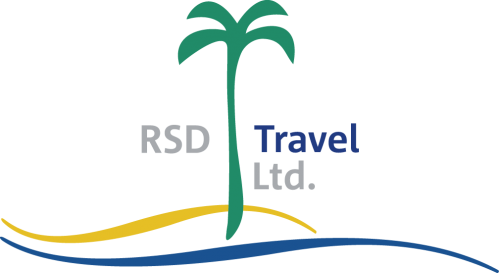National Information on South Africa
Comparison of temperatures
| Jan | Feb | Mar | Apr | May | Jun | Jul | Aug | Sep | Oct | Nov | Dec |
| Pretoria | 23 | 24 | 24 | 21 | 18 | 14 | 12 | 14 | 15 | 19 | 20 | 22 |
| London | 6 | 8 | 9 | 11 | 15 | 20 | 21 | 20 | 19 | 15 | 10 | 7 |
General note:
Below is an information overview. The conditions of entry, as well as the political and health situation, can change anywhere in the world at any time. We therefore recommend checking before your trip. Please check the website of the Foreign Office (www.gov.uk/) before your departure.
Geography:
The Republic of South Africa is at the southern tip of Africa.
Form of government:
Parliamentary democracy with a strong Executive President and federal elements. The bicameral system comprises the National Assembly (400 seats) and the National Council of Provinces (90 seats). The head of state and government is Cyril Ramaphosa.
Capital:
Pretoria (approx. 2,5 million inhabitants)
Religion:
79.8% Christian, 1.5% Muslim, 1.2% Hindu, 0.3% traditional African religions, 0.2% Jewish, 0.6% other, 15.1% undetermined
Language:
All 11 national languages are official languages, incl. Afrikaans (13.3%) and English (8.2%).
Climate:
dry to subtropically-humid
Electricity:
220 V, 50 Hz. 3-pin plugs. An adapter is required.
Local time:
The time difference to Greenwich Mean Time (GMT) is +2. There is no summer/winter time adjustment in South Africa, so the difference to the UK is +1 in summer.
Making telephone calls:
To make phone calls to the UK, pre-dial 0044 (+44). To make phone calls from the UK to South Africa, pre-dial 0027 (+27).
Country and people:
Major cities are often characterised by strong contrasts. While better residential areas are often spaciously laid out, the „Townships“ – which are still home to the majority of the non-white population – largely feature basic housing or slum-like huts. But not all townships are necessarily slums – there are also townships in middle-class residential areas.
South Africa’s coastlines are ideal for bathing. Please note that strong (under)currents can prevail which can carry even experienced swimmers out to sea. Sharks also pose a potential risk. We urgently recommend enquiring about safe bathing locations and staying on beaches with lifeguards.
Where possible, taxis should only be reserved at reliable and well-known companies. As a general rule, hotels and B&Bs will be of assistance when it comes to making reservations. We urgently advise you to refrain from hitchhiking or travelling in so-called minibus taxis.
Entry requirements for British citizens:
British nationals do not need a visa to visit South Africa for tourism purposes for a period of up to 90 days. Your passport should be valid for a period of 6 months from the date of entry in South Africa and should have at least two blank pages. For more information, please see: www.gov.uk/foreign-travel-advice/south-africa/entry-requirements. The South African government does not accept British passports that have been extended by 12 months by British Embassies and Consulates under exceptional measures put in place in mid-2014. You will not be able to enter or exit South Africa on an expired British passport with an extension stamp.
Entry requirements for British citizens can change at short notice. Legally binding information and/or more extensive information on entry requirements is only available from the Embassy or one of the Consulates of your destination country.
Whilst we endeavour to provide guidance where necessary, we can not be responsible for any problems encountered (whether at any point of entry or elsewhere) in the event that passport and visa requirements are not satisfied.
Tour guides:
Your expert tour guides will be able to provide you with detailed information about the country, people, history, culture etc., and offer advice and assistance for organising your trip. They can also help with room allocation and look forward to welcoming you with initial information. Here you will find out all you need to know and useful information about the trip. We have put together a varied programme including numerous highlights, enabling you to experience the culture and diversity of landscape that South Africa has to offer, and learn all about the country and its people.
Additional packages:
Although your trip already includes a comprehensive package, you also have the option of choosing added extras. We recommend booking the following packages:
Explorer package: The package includes the 3 excursions “Waterfront in Cape Town“, “Boat Trip in Knysna“ & “Cape of Good Hope“: only £129 per person.
Half board: The package includes comfortable half board, i.e. 7× rich dinner: only £179 per person.
Currency/Banks/Credit cards:
The rand (ZAR) is the currency of South Africa. 1 ZAR = 100 Cents. Exchange rate (December 2022): 1 GBP = 21,14 ZAR. 1 ZAR = 0.05 GBP. EC and credit cards linked to the Maestro system can be used at international ATMs which are readily available in larger cities. Up to 2,000 ZAR can be withdrawn per day. Processing fees may be incurred depending on the card used. ATMs located outside buildings should be avoided. Preference should be given to ATMs in shopping malls, supermarkets and banks. Beware of tricksters offering to help you to withdraw money whose real objective is to swap your EC/credit card for a fake.
Most shops, hotels and restaurants accept credit cards. Cash can be changed everywhere in large cities but should only be carried in small amounts on account of the high levels of crime. Eurocheques are not accepted. We do not recommend changing South African rand in the UK as import restrictions are in place and the exchange rate is much better in South Africa. An increasing number of counterfeit 200-rand notes have been in circulation recently. It is therefore advisable to change money only through official channels in banks or currency exchange agencies with the following opening hours: Mon. to Fri. 9 am to 3:30 pm, Sat. 8:30 am to 11 am. Passports must be shown when changing money.
Country-specific safety and security:
South Africa has higher crime rates than the UK, especially in large cities and their suburbs. Most violent crime is in areas in which tourists are not usually affected. Nevertheless, British travellers can be the target and victim of theft, burglary, robbery and similar crimes. We urgently recommend refraining from resistance in the event of robbery. Good preparation and reasonable behaviour significantly reduce the likelihood of becoming a victim of a criminal offence. The following precautionary measures are recommended:
- Always carry your mobile phone with you. (Emergency numbers: Police: 10 111; Ambulance: 10 177 or 112)
- Major city centres, e.g. Johannesburg, Pretoria and Cape Town, should be avoided after business hours and especially after dark; stay in groups when in city centres on Sundays and national holidays.
- Increased caution and prudence is advisable when visiting townships. Visits to townships should be organised and led by a guide who is familiar with the location.
- Secluded hiking paths and deserted areas should be avoided on excursions to public parks and well-known sights. Reduce the risk by enjoying excursions in groups only.
Special criminal provisions:
Depending on the severity of the offence, the possession, consumption, import/export and trafficking of drugs is punishable by a monetary fine and/or up to 25 years of imprisonment. Prostitution is a criminal offence. Offences associated with child prostitution are subject to particularly long prison sentences.
Picking protected plants and catching protected species of animals is prohibited and can lead to substantive monetary fines and imprisonment. The same also applies for the unauthorised export of such flora and fauna. Nude bathing is also prohibited.
Customs regulations:
Used personal items can be imported free of duty. More detailed customs information on importing goods is available from the embassy of your destination country. Legally binding information can only be provided there.
Important: If you’re travelling to Great Britain from outside the UK, your personal allowances mean you can bring in a certain amount of goods without paying tax or duty. If you go over your allowances you must declare all your goods and pay tax and duty on all the goods in that category. Please inform yourself about the current customs regulations: www.gov.uk/bringing-goods-intouk-personal-use/arriving-in-Great-Britain.
Medical information:
At least 8 weeks before your trip, check the latest country-specific health advice from the National Travel Health Network and Centre (NaTHNaC) on the TravelHealthPro website (https://travelhealthpro.org.uk/countries). Each countryspecific page has information on vaccine recommendations, any current health risks or outbreaks, and factsheets with information on staying healthy abroad. As a general rule, the level of medical care is good. Private hospitals in larger cities are of a European standard while state hospitals are often crowded and suffer from budget cutbacks.
Important information: As a general rule, medical services and hospital treatment are subject to advance payment – sometimes to a significant sum. Conclusion of international health insurance with repatriation insurance is urgently advised.
Yellow fever: When travelling from a country declared by the WHO as a yellow fever endemic area, proof of valid yellow fever vaccination is required. A list of yellow fever endemic areas can be found at www.who.int. The border authorities have been instructed to implement these rules consistently and to either send back travellers with the corresponding travel profile who do not avail of vaccination documents or to quarantine them for 6 days at their own expense.
Diarrhoea: Most diarrhoea disorders can be avoided by observing the following hygiene rules: Only use water from a safe source, e.g. bottled water, never tap water. Also use drinking water for washing dishes and brushing your teeth. Boil, peel or disinfect food. Make sure your food is safe from flies. Wash your hands with soap as often as possible but always after using the bathroom, before preparing food and before eating.
Malaria: Transmission follows a bite by the blood-sucking Anopheles mosquito which is active at night. The disease can present weeks to months after visiting the country. If a fever appears during this period, it is necessary to inform the doctor treating you of your visit to a malarial region. Kruger Park and the northern coastal area of Kwazulu-Natal Province are regarded as endemic malarial regions.
Medication and personal adjustment thereof should be discussed with a specialist in tropical/travel medicine prior to ingestion. You are advised to take a sufficient supply with you although all medication is also available and in good quality there.
On account of the infection risks associated with mosquitos, all travellers to the regions in question are recommended to
- wear light-coloured full-length clothing (long trousers, long shirts)
- apply insect repellent to all exposed body parts several times a night (malaria)
- to sleep under a mosquito net if necessary.
Customers must ensure that they are in good physical and mental health in line with the trip in question. Customers must enquire about the physical mobility and psychological autonomy required for this trip.
All information is subject to change / Last updated: December 2022
back Information & tips
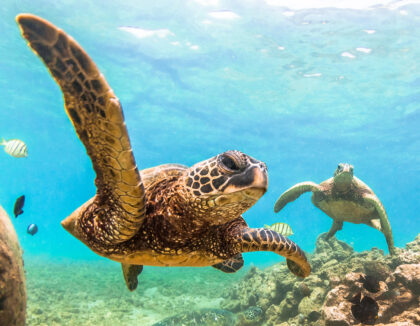 Travel highlights
Travel highlights
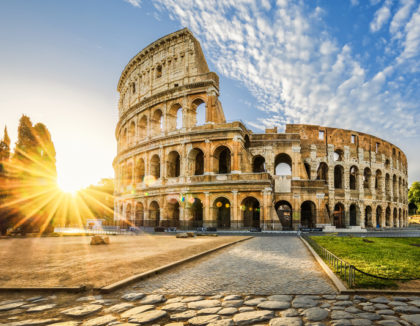 Europe
Europe
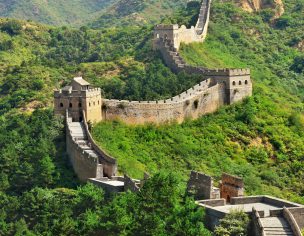 Asia
Asia
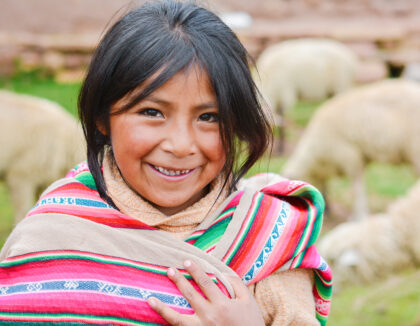 America
America
 Africa
Africa
